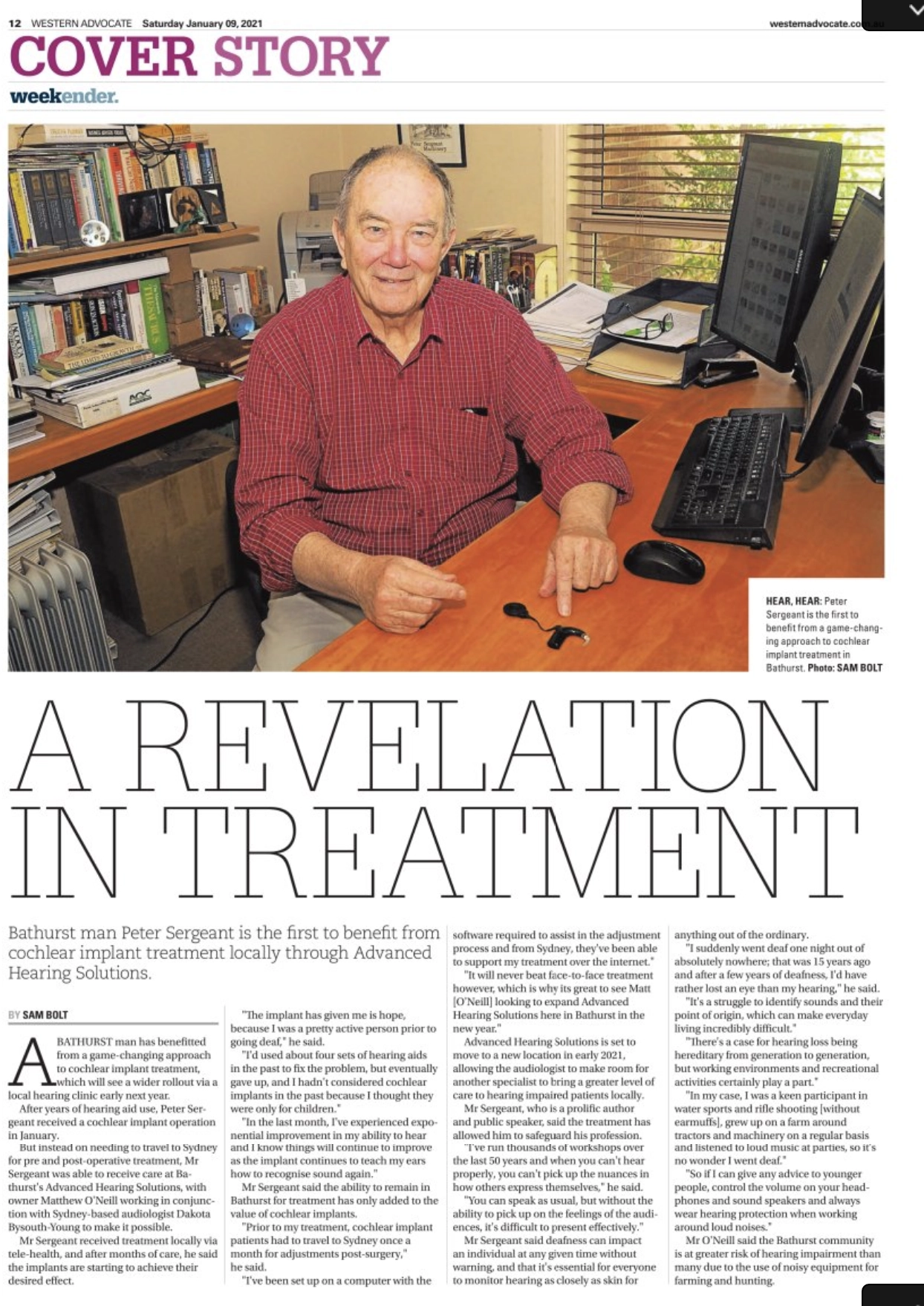Cochlear Implant Services
If you are no longer able to hear adequately with hearing aids, you might benefit from a cochlear implant. A cochlear implant has both an internal, surgically implanted part, and a second, external part. It requires surgery to insert an electrode array into your inner ear which allows the stimulation of your hearing nerve, while bypassing the most damaged part of your inner ear. The electrode array connects to a small package of electronics (stimulator) which sit under the skin of your skull. The internal part then connects to the speech processor on the outside of your body by a magnet. The speech processor picks up sounds from around you and so the transmitter/stimulator can them into digital signals which are delivered by the electrode array to your hearing nerve.
Not everyone with a hearing loss would benefit from a cochlear implant, but they are most beneficial when a person no longer obtains adequate benefit from hearing aids. While the idea of surgery can be a little scary, there can be significant benefits from a cochlear implant that allow you to communicate better with your loved ones and have a better quality of life. While a cochlear implant does not return hearing back to normal, many people with cochlear implants have found that they can re-engage in activities they had stopped due to their hearing loss and connect with their family and friends again. Our clinicians are trained to identify clients who may benefit from a cochlear implant. If you could be a candidate for a cochlear implant, the clinician will discuss this with you, or you can always raise it with your clinician if you are curious about whether you may benefit from a cochlear implant.
Make an Appointment
Pre-implant assessments
At Advanced Hearing Solutions we perform pre-cochlear implant assessments. This assessment provides preliminary information regarding your implant candidacy. By doing this assessment locally, you can have a preliminary idea of whether you might be a cochlear implant candidate before proceeding with further assessment at a dedicated implant clinic. If the results indicate you may be a cochlear implant candidate, we can refer you to the Cochlear Implant Program where they will perform additional complex testing and evaluation to finalise whether a cochlear implant is a good option for you. At the cochlear implant clinic, they will make sure you understand the benefits and risks of going ahead with a cochlear implant so you can make an informed decision. If you are found to be a candidate for a cochlear implant, the decision is in your hands as to whether you proceed. However, it would not be recommended unless it was believed you could get improvements with an implant compared to your hearing aids.
Cochlear implant surgery may be covered by your health insurance. For those without insurance there are public waiting lists although it can take some time to get to the top of the list. If you think you might be a candidate for a cochlear implant down the track it might be worth exploring your insurance options ahead of time.
Post implantation support
Cochlear implants, particularly in the early days post implantation, require a series of mapping (programming) sessions to get the settings optimised and help you hear your best as you adapt to the device. You also then need ongoing, regular appointments to ensure your cochlear implant continues to be optimised for you. In conjunction with Hearing Implants Australia, we can fine tune most hearing implants and perform basic troubleshooting at our Bathurst office. This enables you to receive local ongoing services to support your implant rather than travelling to Sydney. This makes it much easier to have your implant supported.
